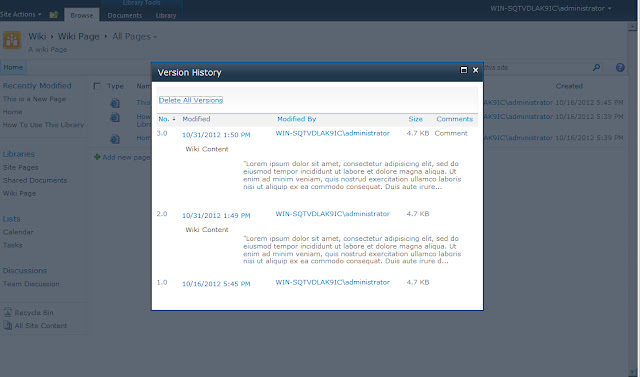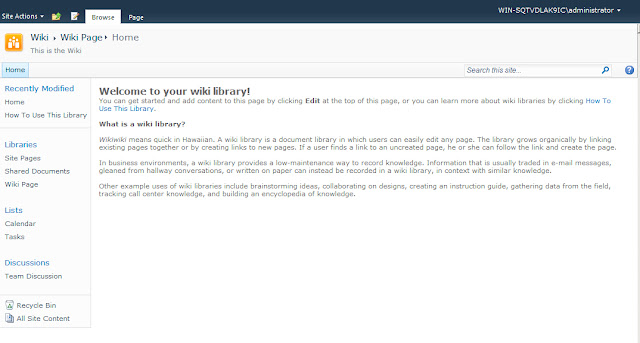 Google Image Result for http://blogs.msdn.com/blogfiles/jackiebo/WindowsLiveWriter/SuperchargeyourSharePointWikiAddingColum_D78C/image%5B30%5D.png
Google Image Result for http://blogs.msdn.com/blogfiles/jackiebo/WindowsLiveWriter/SuperchargeyourSharePointWikiAddingColum_D78C/image%5B30%5D.pngI guess the first first rule about first rules is never to have a first rule.
Which actually means sometimes its probably okay to have a first rule.
As for SharePoint there are a number of techie first rules from not to use virtual hardware for databases in live to always run application pools on unique AD identities.
But as for once SharePoint goes wild, what rules are there?
Companies will spend vast amounts of time and effort to lay the technical groundwork (generally being taken to the cleaners by contractors making it all seem much harder than it is) and rush SharePoint to the users without much thinking about what does or does not work. IT will find itself being hit by requests for things like Blogs and Wikis without any criteria for selection.
Well let me make one rule I think is pretty hard and fast:
don't use Wikis.
This is for a number of reasons:
- SharePoints Wiki is not very good
- Wikis are not very good
- Users find wikis impossible to use
- Wikis can never be finished (you can prove this actually and its a real flaw)
But I would like to concentrate on the social reasons Wikis make for bad collaboration.
Wikis have the following key problems:
- Because Wikis an unstructured media it is unclear how to use them. This means different users will go about them in various different ways. But because most wikis deploy open contribution models (there is just too much work for 1 person) this leads to endless debates on how the Wiki will be used. Look at wikipedia, which gets more press over its debates on how to govern than its freedom of expression.
- Because wikis provide for a massive network connecting all nodes, the number of missing links grows exponentially with the number of nodes added. That means for every piece of new information added to the site the amount of linking grows in relationship to the existing sites. To but it not too nicely the more you work on a wiki the more undone it becomes.
- Wikis push consolidation and power of political process on the web. There are millions of blogs out there, and only one Wikipedia. Wikis demand so much effort, and require so much time be spent on their government that they consolidate effort and thus control in a few hands, thus ruining the entire collaboration benefit of the web.
- Wikis produce unstructured code that is hard to machine read, hard to mash up, and ugly.
- Collaboration on the text, rather than follow up comments as in blogs, makes for long poorly written post that make less sense in time.
The key problem with wikis I would sum up is that they are hard to start, require lots of work and lots of management, and the more you work on them the less they get done.







